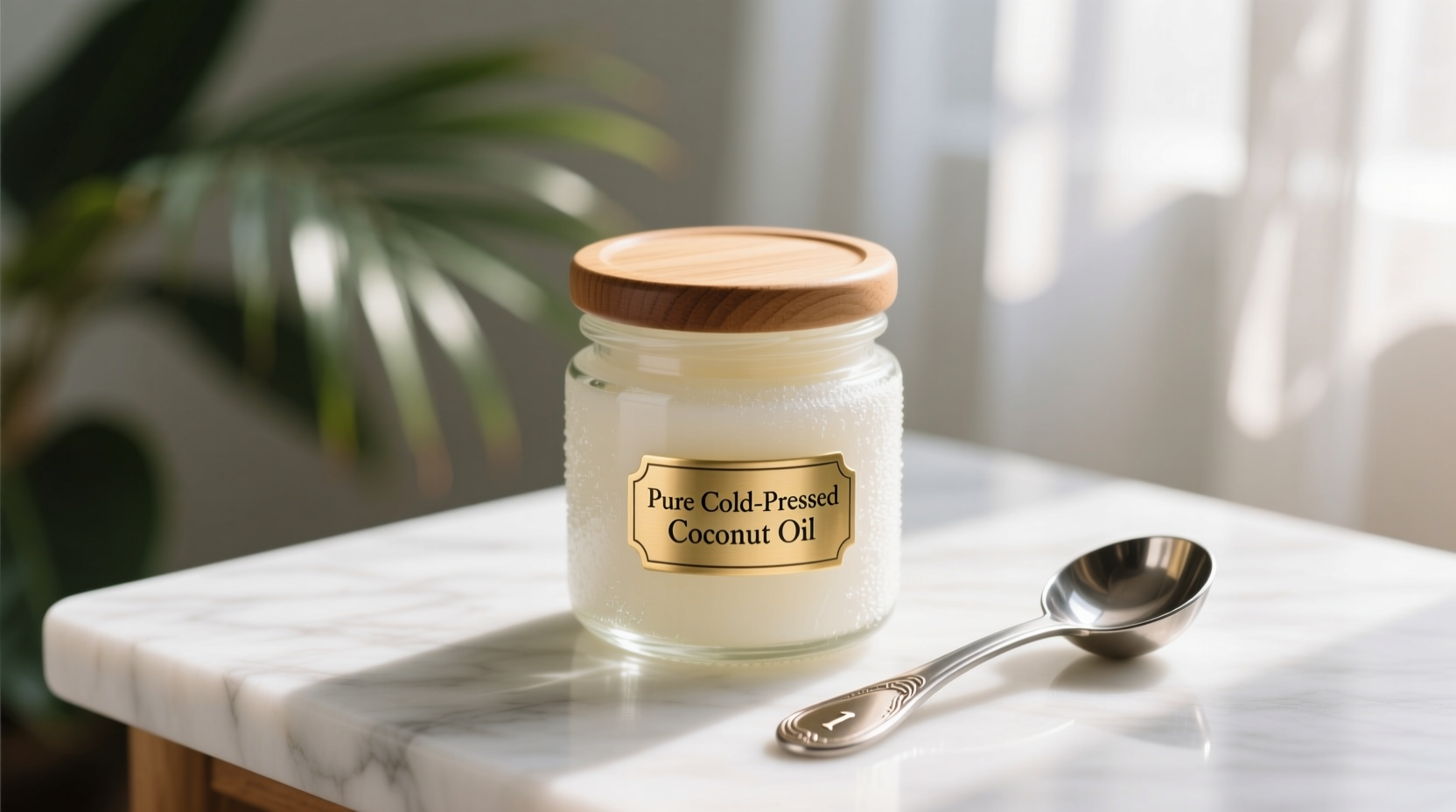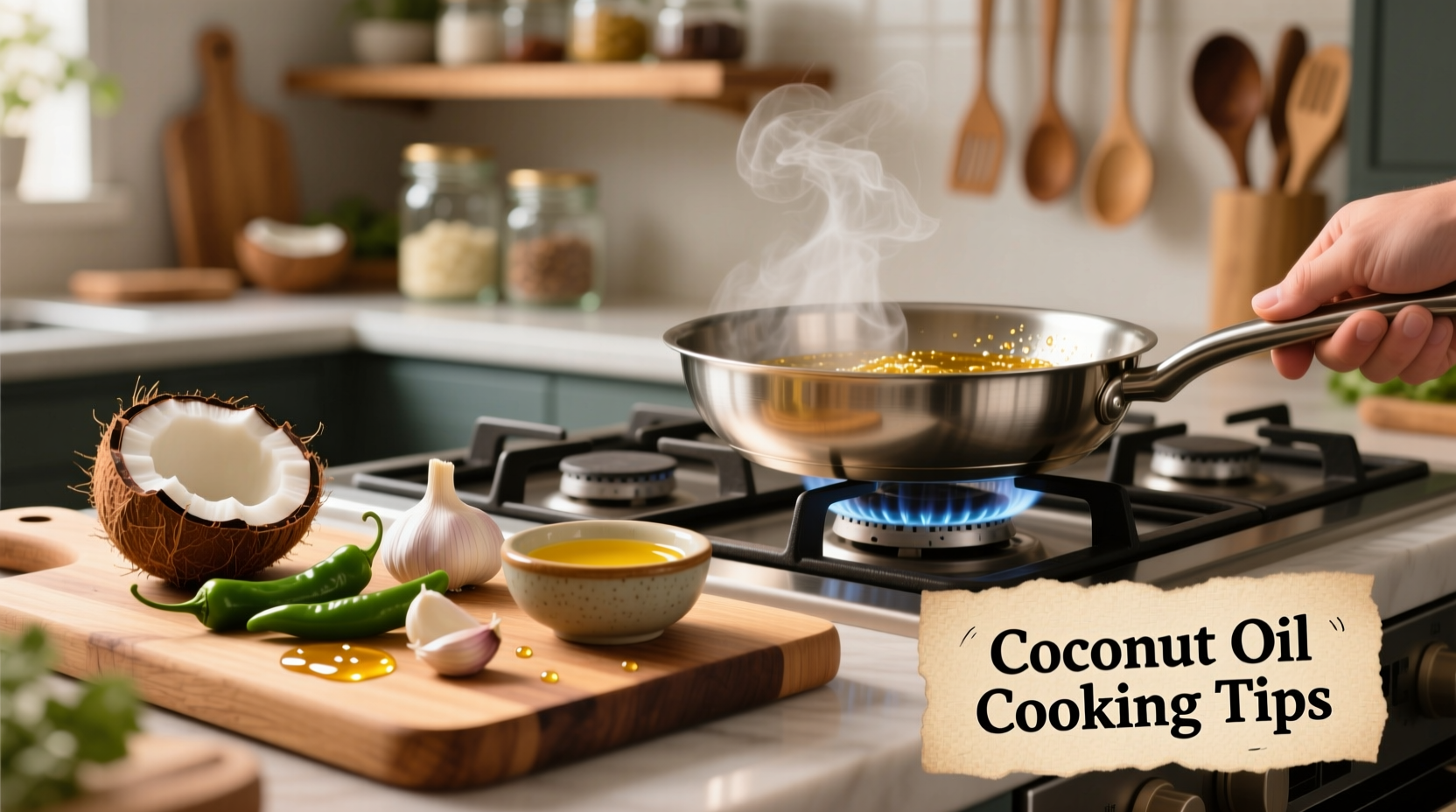Discover exactly how to cook with coconut oil safely and effectively: unrefined coconut oil has a smoke point of 350°F (177°C) ideal for medium-heat cooking, while refined reaches 400-450°F (204-232°C) perfect for high-heat methods. Learn which dishes benefit from its subtle sweetness, proper storage techniques to prevent rancidity, and avoid common mistakes that compromise flavor and nutrition.
Coconut oil has surged in popularity among home cooks seeking natural alternatives to processed vegetable oils. But using it properly requires understanding its unique properties. This guide cuts through the confusion with science-backed techniques that maximize flavor while preserving nutritional benefits. Whether you're stir-frying vegetables, baking desserts, or making homemade dressings, these practical methods ensure perfect results every time.
Understanding Coconut Oil Types: Which One Should You Use?
Not all coconut oils behave the same in the kitchen. Choosing the right type makes all the difference in your cooking results:
| Type | Smoke Point | Best For | Flavor Profile |
|---|---|---|---|
| Unrefined (Virgin) | 350°F (177°C) | Medium-heat cooking, dressings, baking | Pronounced coconut flavor |
| Refined | 400-450°F (204-232°C) | High-heat frying, searing, roasting | Neutral flavor |
| Expeller-Pressed | 450°F (232°C) | High-heat applications | Mild coconut flavor |
According to the USDA FoodData Central, unrefined coconut oil retains more phytonutrients but has a lower smoke point. Refined versions undergo processing that removes impurities, raising the smoke point while reducing coconut flavor. For baking or dishes where coconut flavor complements ingredients (like curries or tropical desserts), choose unrefined. For high-heat cooking or neutral-flavored dishes, refined works best.

Mastering Temperature Control: Avoiding Common Mistakes
Exceeding coconut oil's smoke point creates harmful compounds and unpleasant flavors. Many home cooks make these critical errors:
- Using unrefined oil for high-heat searing - This causes smoking and bitter flavors
- Heating oil beyond visual cues - Wait for gentle shimmering, not smoking
- Mixing with low-smoke-point oils - Blending reduces overall smoke point
Research from the National Center for Biotechnology Information confirms that heating oils past their smoke points generates free radicals and acrolein, compounds linked to inflammation. Always preheat your pan gradually and add coconut oil just before cooking.
Perfect Pairings: Dishes That Shine with Coconut Oil
Leverage coconut oil's unique properties in these applications:
For Sautéing and Stir-Frying
Use refined coconut oil for Asian stir-fries at medium-high heat (around 375°F). Its stability prevents oxidation better than olive oil at these temperatures. Add aromatics like garlic and ginger first, then vegetables. The oil's slight sweetness complements bell peppers, broccoli, and snap peas.
In Baking Applications
Substitute unrefined coconut oil for butter in a 3:4 ratio (3/4 cup coconut oil for 1 cup butter). It solidifies at room temperature like butter, creating flaky pie crusts and tender cakes. Works exceptionally well in banana bread, chocolate desserts, and tropical fruit pies where the coconut flavor enhances rather than competes.
For Homemade Dressings and Dips
Whisk melted unrefined coconut oil with citrus juice, herbs, and spices for emulsified dressings. The oil's natural saturation helps create stable emulsions without commercial stabilizers. Try it in Thai-inspired dressings with lime, fish sauce, and cilantro.
Storage Secrets: Maximizing Shelf Life
Coconut oil lasts 1-2 years when stored properly, but improper storage causes rancidity. Follow these guidelines:
- Keep in airtight glass container away from light
- Store below 75°F (24°C) - cooler temperatures solidify the oil but don't damage it
- Never store near heat sources like stoves or ovens
- Use clean, dry utensils to prevent water contamination
The FDA's food safety guidelines emphasize that moisture introduction is the primary cause of oil spoilage. Always ensure containers and utensils are completely dry before contact with oil.
When Not to Use Coconut Oil: Important Limitations
Despite its versatility, coconut oil has specific limitations:
- Avoid for deep-frying - Even refined coconut oil breaks down after repeated high-heat use
- Not ideal for delicate fish - Stronger varieties overpower subtle seafood flavors
- Limited shelf stability after heating - Don't reuse heated coconut oil
- Not suitable for all dietary needs - High in saturated fat (about 12g per tablespoon)
Pro Chef Techniques for Maximum Flavor
Professional cooks use these advanced methods to elevate dishes with coconut oil:
- Infuse with aromatics - Gently heat oil with lemongrass, kaffir lime leaves, or ginger for 10 minutes, then strain
- Create oil blends - Mix equal parts coconut and avocado oil for balanced smoke point and flavor
- Use in finishing - Drizzle unrefined oil over finished curries or grain bowls for flavor boost
- Temper spices - Bloom whole spices in warm oil before adding liquids to release essential oils
These techniques maximize the oil's functional properties while enhancing dish complexity. Remember that coconut oil's flavor intensifies slightly when heated, so adjust quantities accordingly in sensitive recipes.











 浙公网安备
33010002000092号
浙公网安备
33010002000092号 浙B2-20120091-4
浙B2-20120091-4